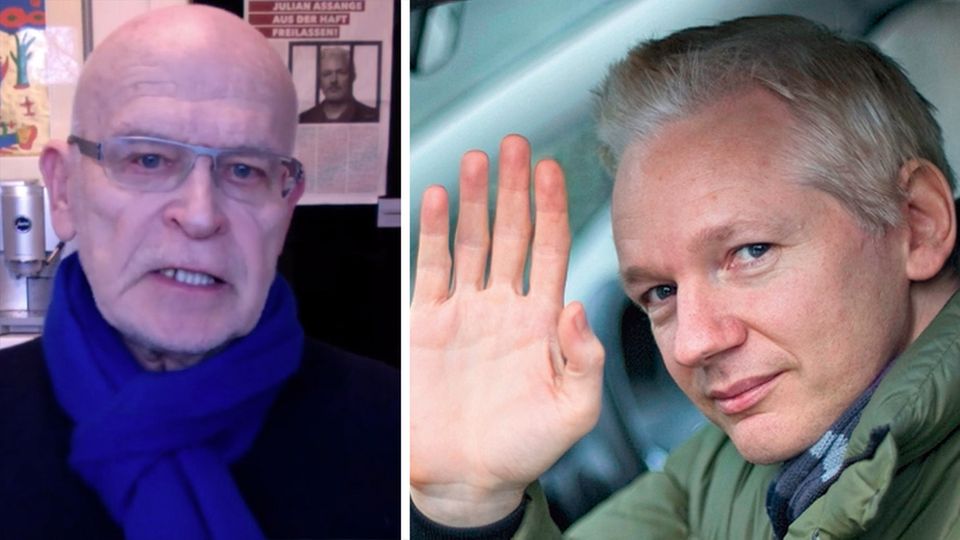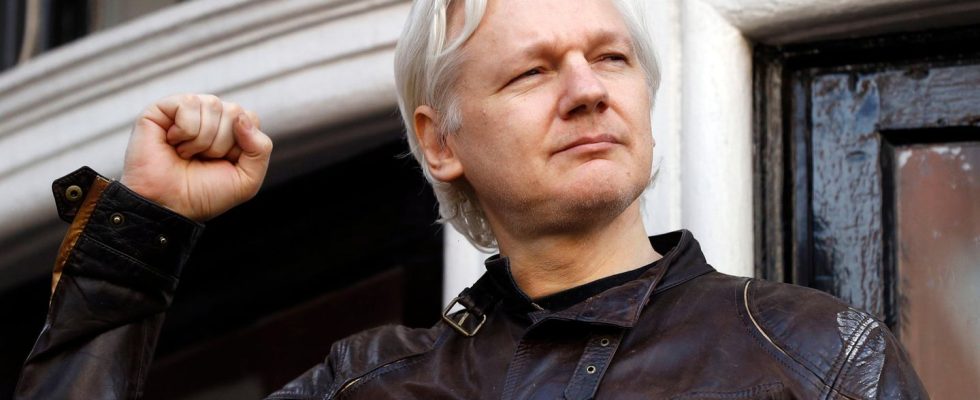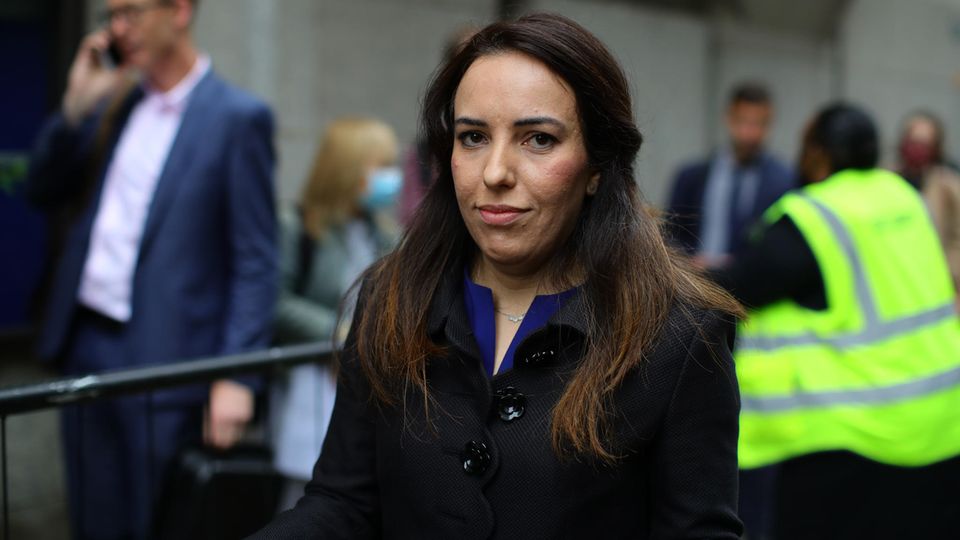Appeal process
Desperate fight: Wikileaks founder Assange fears for his life if extradited to the USA
Julian Assange greets supporters in front of the Ecuadorian embassy in London (archive photo from May 19, 2017)
© Frank Augstein / DPA
The Wikileaks founder wants to defend himself in an appeal against the threat of extradition to the USA. But it is uncertain whether the judges in London will give him the opportunity to do so.
Expert: Julian Assange depressed and suicidal
“If he is extradited, he will die,” fears his wife Stella Assange. His physical and mental condition is poor and every additional day in prison is a danger to his life. Experts describe Assange as depressed and suicidal. “He is not feeling well,” said his lawyer Edward Fitzgerald at the beginning of the hearing on Tuesday, which is why Assange did not appear in court.
The USA wants to put Assange on trial for espionage. Starting in 2010, Wikileaks published more than 700,000 confidential documents about U.S. military and diplomatic activities, primarily in Iraq and Afghanistan. The papers contain explosive information, including about the killing of civilians and the mistreatment of prisoners.
Assange’s supporters believe the prosecution is politically motivated. The London court will now decide whether all legal remedies against extradition have been exhausted in Great Britain – or whether Assange can continue to take action against it in British courts.
Assange has already paid a high price for his revelations. In 2012 he fled to the Ecuadorian embassy in London. At that time he was accused of rape in Sweden – a case that was later dropped. Ecuador granted the Australian political asylum and he hid in the embassy for seven years – a situation he compared to life on a space station.
US election 2024
These former members of the Trump administration believe their ex-boss is unfit to govern the United States
Belmarsh maximum security prison
At the embassy he fell in love with his then lawyer and now wife and had two children with her. But after a change of power in Quito, the Ecuadorians handed Assange over to the police in 2019.
Since then he has been held in the high-security Belmarsh prison in east London – under conditions that the then UN special rapporteur on torture, Nils Melzer, described as “psychological torture” after a visit.
When Assange is asked about his childhood, he compares himself to Mark Twain’s children’s book hero, the adventurous Tom Sawyer. In contrast to him, Assange did not grow up with his aunt, but with his mother, an artist, with whom he lived in more than 30 places in Australia in the first 15 years of his life. He later studied mathematics, physics and computer science in Melbourne and had his first son.

Wikileaks was founded in 2006
Assange discovered his talent as a hacker when he was still a teenager and cracked the NASA and Pentagon websites. The Australian police tracked him down and he had to pay fines several times. In 2006, Assange founded Wikileaks with like-minded activists and IT experts. “We are creating a new standard for a free press,” he told the AFP news agency in 2010.
Assange’s image as a white-haired “cyber warrior” has suffered over the years – especially when Wikileaks published thousands of emails from Democratic candidate Hillary Clinton’s team during the 2016 US presidential election campaign, which benefited Republican Donald Trump. According to US intelligence, the documents came from Russian agents, but Wikileaks denies this. This publication fueled critics’ suspicions that Assange was collaborating with Russia.
When Wikileaks published documents unredacted and thereby endangered sources, Assange also received criticism from the media that had previously worked with him. Nevertheless, in 2022, “Der Spiegel”, the “New York Times” and other newspapers called on Washington to drop the charges against Assange: “Because journalism is not a crime.”


